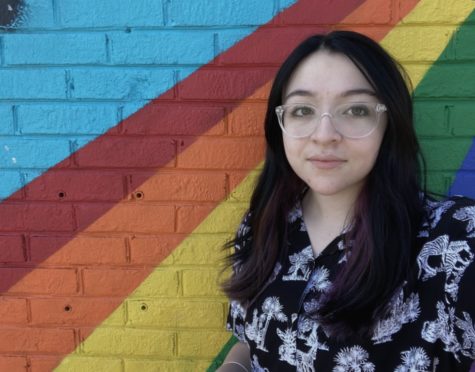Caffeine controls kids, beware of side effects
Staff and students serve coffee at Ocean Lakes’ Brew Ha Ha coffee bar, available for adults every morning.
April 6, 2022
An exhausted and stressed high school student stares at their bright computer screen late at night trying to cram for a test. Without thinking, they reach for a sip of their energy drink hoping it might give them the temporary motivation they need to handle their work and suppress their anxiety. However, this seemingly harmless short-term energy boost may have some unsavory long-term consequences.
According to the University of Michigan Health System, caffeine is a natural stimulant that can energize the consumer as well as enhance their mood and help them focus when ingested in small amounts. However, when too much caffeine is consumed, it can cause insomnia, anxiety, nausea, and heart palpitations. It can be easy to overlook these possible outcomes, especially because caffeine triggers dopamine, giving the consumer a temporary mood boost.
Caffeine also has a different effect on teenagers due to the fact that their brains have not completely matured yet. According to a health organization called Very Well Health, teenagers have growing connections being made constantly in their brains, called synapses. When a person’s synapses are firing, they are able to focus and work productively. However, caffeine can slow or stop these connections, stunting brain development.
It can be difficult to tell when a casual enjoyment of caffeinated drinks crosses the line into a caffeine addiction.
“I drink caffeinated drinks sometimes, but I don’t think I have an addiction,” said senior Jennifer Thornock.
What constitutes an addiction? According to the American Association of Addiction Medicine, “addiction is a treatable, chronic medical disease involving complex interactions among brain circuits, genetics, the environment, and an individual’s life experiences. People with addiction use substances or engage in behaviors that become compulsive and often continue despite harmful consequences.”
“I have five cups of coffee a day, plus energy drinks,” said freshman Makenzie Fleming, who thinks she might have an addiction to caffeine but is not alone. Many freshmen claim to drink many kinds of caffeine each day, including pre workout supplements that have 150-300 milligrams of caffeine in each drink.
According to Next Generation Village, a teen rehabilitation center, someone might have a caffeine addiction if they can’t seem to function and complete their everyday tasks without caffeine. They might also experience withdrawal symptoms when they don’t have caffeine, such as headache, fatigue, depression, and anxiety.
“I used to get really bad headaches when I didn’t drink caffeine,” said senior Saina Trotman.
Some ways to decrease caffeine dependence are to increase water intake and exercise, as well as slowly decrease daily caffeine intake. There are healthier alternatives to caffeine, and it isn’t impossible to get out of caffeine addiction.
“I wish I was kidding, but I used to drink a ton of caffeine every single day. I’m just glad I do not now,” said Saina.


